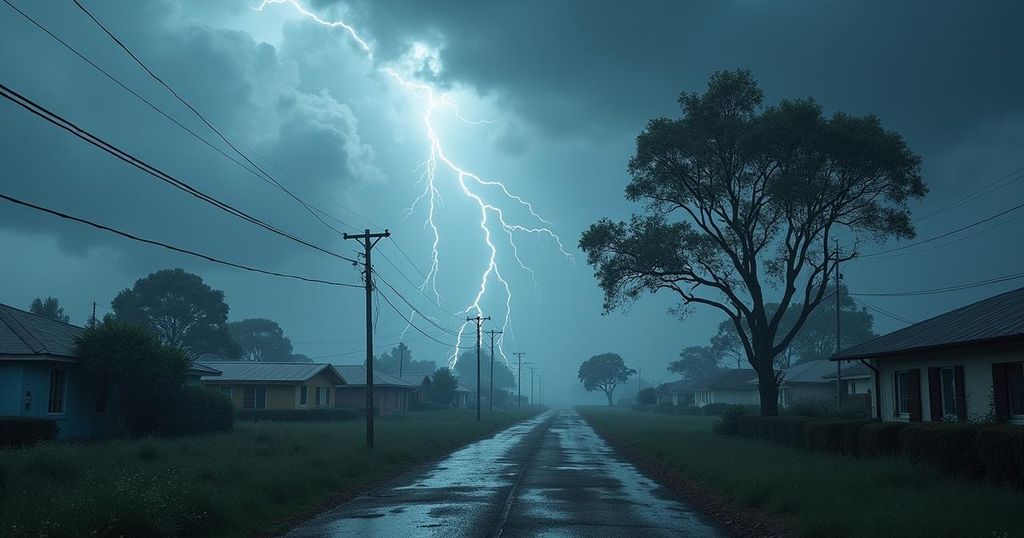The Complexity of Climate Change Politics amid U.S. Hurricanes and Indian Cyclone Management
This article explores the political ramifications of recent hurricanes in the U.S., examining the denial of climate change among certain factions and the spread of misinformation. It contrasts this with India’s effective cyclone management practices, highlighting the dual role of governments in disaster response and environmental degradation.
In the context of the recent hurricanes that have struck the United States, political narratives surrounding climate change have garnered significant attention. As the nation approaches the presidential elections, the devastation wrought by Hurricanes Helene and Milton has ignited a fervent debate. Former President Donald Trump has publicly criticized the Biden-Harris administration regarding their disaster relief efforts. Complicating matters further, a wave of misinformation has surfaced amidst the tumult. Supporters of Trump have propagated conspiracy theories alleging the administration has orchestrated weather events to target Republican strongholds, utilizing doctored images and false narratives to paint a picture of governmental negligence. At the crux of this issue lies the steadfast refusal of certain factions within the Republican Party to acknowledge the scientific consensus linking climate change to the intensity and frequency of hurricanes. Extensive research supports the assertion that climate change exacerbates these extreme weather events, yet influential oil lobbyists promote a narrative framing these disasters as isolated incidents, attributed solely to government inefficacy. In contrast, India’s experience with cyclone management serves as a pertinent example of effective disaster response. The Indian government has been lauded for its proactive measures, as evidenced by the successful evacuation of over 100,000 individuals during Cyclone Nisarga and an impressive evacuation of 1.2 million people during Cyclone Fani in a mere 48 hours. Unlike the polarized debates prevalent in the U.S., Indian authorities largely remain united in recognizing the challenges posed by climate change. However, there exists a paradox: although the Indian government excels in disaster mitigation, it continues to endorse projects that jeopardize the environment, such as unsustainable tourism development and deforestation initiatives in ecologically sensitive areas. This highlights a dual responsibility where authorities must confront both the consequences of their actions and the natural disasters they aim to alleviate.
The article addresses the political dynamics surrounding the recent hurricanes in the United States, particularly focusing on the interplay between climate change acknowledgment and governance. As the 2024 presidential elections loom, the storms have become a focal point for criticism toward the currently ruling party. In contrast, the narrative shifts to India’s approach to natural disasters, wherein the government has demonstrated effective emergency management strategies but simultaneously engages in environmentally detrimental projects. The contrasting responses of the U.S. and Indian governments provide insight into their respective political and environmental challenges, particularly in relation to climate change.
In conclusion, while the ongoing hurricanes in the United States have sparked a contentious political dialogue regarding climate change and disaster management, they also underscore a critical need for accountability and truthful representation of scientific data. Furthermore, the efficiency of India’s disaster response highlights that effective management can coexist with harmful policies, necessitating a holistic approach to environmental stewardship. Ultimately, recognizing the link between climate action and disaster mitigation is vital for both political entities and governmental authorities worldwide.
Original Source: timesofindia.indiatimes.com




Post Comment